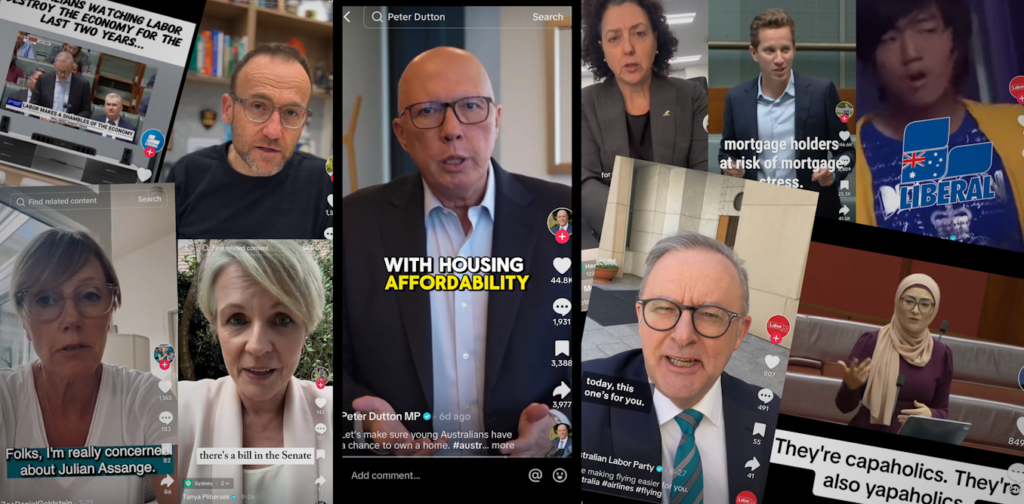Opposition leader Peter Dutton’s recent decision to join TikTok signals a major change in his approach to political campaigning. He had previously criticized the platform over security concerns, but has now embraced it.
Mr Dutton’s reversal reflects a broader trend of Australian politicians using the platform. This is especially true in 2024, when important elections will be held around the world.
TikTok offers a unique form of engagement, allowing politicians to reach a wide range of voters in ways that traditional platforms cannot.
Dutton’s conservative initial posts contrast with TikTok’s casual, inviting style, but demonstrate a willingness to adapt to modern political communication. While his original concerns about TikTok’s data privacy remain valid, his shift toward actively using the platform underscores its importance in today’s political campaigns.
The rise of TikTok as a political tool
The political landscape is changing. Politicians around the world who once criticized TikTok are now on board.
This shift not only marks an evolution in electoral strategy, but also raises broader questions about the role of social media in democracy.
Leading politicians, including US presidential candidates Kamala Harris and Donald Trump, continue to use TikTok despite a proposed ban in the US. These bans are currently being challenged in court and are expected to begin in January 2025.
Both candidates’ continued use of TikTok highlights the platform’s undeniable importance in shaping political communication.
TikTok’s popularity stems from its ability to deliver accessible and engaging content. Voters are drawn to TikTok as a source of political news and information because of its easy-to-use format.
TikTok allows politicians to bypass traditional forms of political communication and present their messages in a way that resonates.
For example, Sen. Fatima Payman’s viral “Skibidi” speech is a clear example of how effectively TikTok can amplify political content. She delivered this speech in the Australian Senate using only TikTok slang.
It resonates with young people and has been viewed more than 8 million times so far.
As a result, her account currently has over 100,000 followers and continues to receive significant views on every post.
But when leaning into slang, trends, and other visibility strategies, politicians walk a fine line where content can be deemed “offensive.” This weary factor can occur if the trends being used are losing relevance, or if the content looks out of place or forced (Dutton himself says that while he is behind “low-key” trends, I’m taking some flak for jumping in).
The role of authenticity
One of the key factors behind successful political engagement on TikTok is authenticity. This platform thrives on authentic and relevant content. Politicians who can show a more human side tend to resonate with voters.
Peyman’s use of TikTok slang in her speech allowed her to connect with a young audience and demonstrate her power to speak the language of the platform’s primary users. Trustworthiness plays a key role in TikTok’s algorithm, making it essential for politicians to appear honest.
TikTok’s advertising policy prohibits political ads, so politicians must rely on organic content to capture the attention of users. Therefore, authenticity is a requirement for entry.
Dutton’s presence on TikTok will come under close scrutiny for how he balances his public persona with the platform’s demands for authenticity. Voters are more likely to engage with politicians they can relate to, so whether Dutton can reveal his “normal” side without scaring people will determine how well-received he is on TikTok. I might.
Election campaign on TikTok
TikTok’s electoral influence has already been demonstrated in several countries.
Labor’s use of the app led to electoral success in the 2022 Australian federal election. UK Labor’s similar strategy for 2024 reflected this outcome.
Elections can be won or lost for a variety of reasons. There is also no data directly linking TikTok content to voters’ decisions. However, there is a clear correlation between effective platform use and electoral victory.
As Australia approaches the next federal election, TikTok will play a central role in how political parties reach voters. For politicians like Dutton, mastering the balance between credibility and policy is key to successfully engaging and informing voters on this rapidly evolving platform.
Future challenges
TikTok’s short video format poses challenges for communicating complex policy ideas and often leads to oversimplification. Politicians like Dutton must find ways to engage beyond their platforms to help voters understand their positions.
Another challenge is the legal issues TikTok faces, especially in the United States. If this platform were to be banned or restricted in major markets, its use around the world, including Australia, could be affected. This can disrupt political lobbying and engagement strategies, especially for those who have cultivated a strong presence.
Dutton’s involvement with TikTok could also spark a debate about balancing the benefits of reaching voters through the platform with concerns about data security and misinformation.

